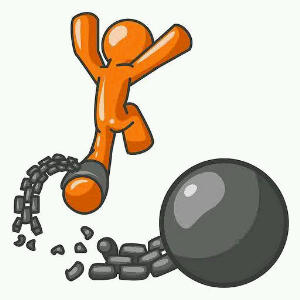My younger two sisters (9 years old) happen to be twins. About two years ago, one of the twins suffered from a case of appendicitis. Unfortunately, the doctors were unable to diagnose the illness in its early stages, which resulted in my sister staying in the hospital for much longer than needed. During the entire ordeal, my whole family experienced tremendous pain and just wanted her to recover quickly and completely. While my sister was in the hospital, her twin felt “incomplete”. Since they spent almost every waking moment together, she no longer had a friend attached to the hip. After a couple of weeks of my sister’s absence, her twin began throwing more tantrums and had trouble falling asleep at night. My whole family wondered if it had anything to do with my other sister being sick and spending time in the hospital. We were almost convinced that she actually felt the physical pain that her twin was enduring. This concept of “twin telepathy” has always intrigued me, especially since I have a personal connection towards the subject. Is there scientific evidence behind the theory that twins can simultaneously experience pain? Is “twin telepathy” scientifically possible?
According to Live Science, twins have a special bond because they are so emotionally and physically attached to one another, especially after birth. There is certainly a psychological connection between twins, who have a tendency to think similarly or mirror the actions of one another. However, this could be easily related to any other pair of siblings. The theory of twin telepathy dates back to the 1800s, where an anecdote describes two brothers that were once conjoined at birth experiencing the same feelings, thoughts, and physical sensations as adults. However, just like this narrative describes, the support behind the theory of twin telepathy is primarily anecdotal. There is not concrete scientific evidence that supports the idea that twins are able to physically feel the sensations that the other one is feeling. It is more likely that shared DNA prompts similar traits, which can be said about all siblings. Like we have discussed in class, anecdotal evidence is not the strongest evidence in the science field and allows for weak inference rather than conclusive results. We cannot rely on anecdotal evidence because it is open to bias and can easily reflect the results of an individuals’ experience. Additionally, there is always the possibility that chance is involved.
One study in England tested the possibility of ESP (extra sensory perception) between twins. In the test, one twin was told to pick a number or draw the first thing that came to mind. The other twin was to say what their twin picked or drew. This test was also applied to non-twin siblings. The results of the study found that the twins were almost twice as likely to get the answer right, compared to the non-twin siblings that were able to predict what their sibling picked or drew. However, it is important to note that neither the non-twin siblings nor the twin siblings scored above the experiment’s chance expectation of 25%.
Null hypothesis: the twin siblings will not score higher than the non-twin siblings in the thought concordance test (same scores)
Alternative hypothesis: the twin siblings will score higher than the non-twin siblings in the thought concordance test
Based on the results of the study, scientists were unable to reject the null hypothesis that the twin siblings will not score higher than the non-twin siblings in the thought concordance test. The probability of a false positive, or scientists saying that the twin siblings scored higher than the non-twin siblings when really there was no difference in scores, would be 5%.
One of the most intriguing aspects of the twin telepathy theory that allows for investigation is the “supernatural”. Similar to what we have discussed in class, the supernatural attracts scientists because it calls for an explanation. Since there are countless anecdotes, noted experiences of possible “twin telepathy” and instances where twin siblings have been able to sense each other’s pain in the most extreme of situations, scientists are willing to investigate and attempt to deduce causality.
ABC debunks many of the twin telepathy theories. The idea that twins can sense each other’s pain and read minds is FICTION. The greatest reasoning behind why twins claim that they can physically feel each other’s emotions is due to the psychological bond that they share. Although they are still siblings, the connection they share may be stronger because they have shared a womb. But let’s be real, what connection is stronger than one created by the womb?





















